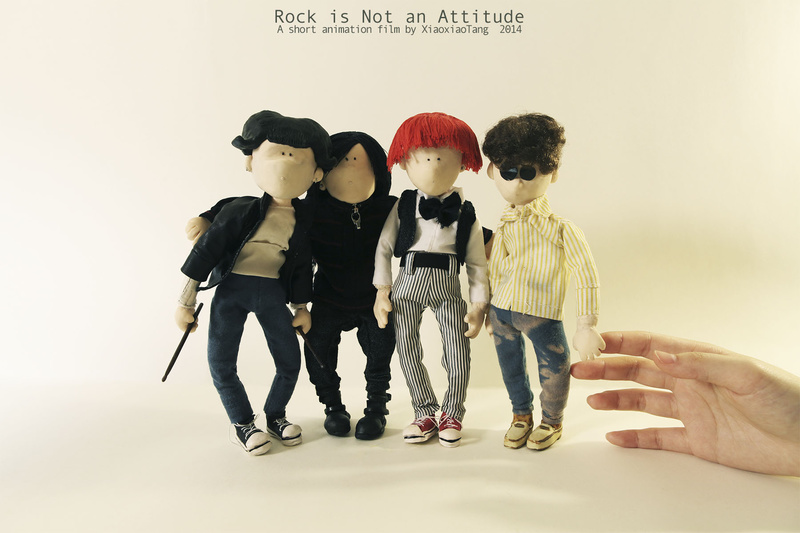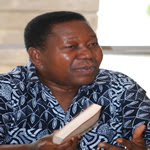The overview of "Serve and Protect", directed by S.W. Wilcox and Epic Muntzir reads: "In the future, justice is no longer blind. Or even human. The year is 2162. Mankind is still reeling from a cataclysmic crash from the greatest technological heights it has ever known. Advances in time travel and medicine were made, but at the price of faster advances in weaponry. The worst fears of the nuclear age were realized and the world was plunged into Atomic War. Now, there are only small pockets of humanity left. In one such city, cyborg police track a resistance fighter, speeding first through a neon city that gasps for energy-remnants and then into a desert showdown. The stunning 4k futuristic animation is achieved through expertise in Adobe After Effects. It details spinning tires, smoky streets and windblown hair to the finest detail, with song lyrics included as a final touch."
You're lying to yourself if you think you're free!
Corruption and power go hand in hand,
According to his director biography, S.W. Wilcox was certified legally blind in 2024, so he is "collecting my final video and scripts while I can still read for a few hours per day." He gives kudos "and horns up to computer-tech that allows breathtaking 4k illustrated videos...that add new life and enjoyment to even 50-year-old songs that millions grew up on." In his director statement he says: "Even those with law degrees are subject to human weaknesses. So no need to rant this is too controversial or disrespectful. Just cue the track in your car stereo and floor it! (Just kidding.)" He goes on to say that music "is a healthy type of chaos, a full three steps away from a destructive kind. Using lyrical phrases, music best introduces a topic for a constructive discussion...music, video, and book, rely heavily and healthily on symbolism..." He notes that "since the time of Gore's PMRC b.s., music and the related arts have been abused and downright stolen from the people of the world, IMHO. Perhaps, though, the Computer Age will help the people have their arts and sciences restored."
(You can read S.W. Wilcox's inspirational journey, including information about his book, Bards of Fantasia, HERE)
S.W. Wilcox mentions PMRC, The Parents Music Resource Center, an American committee that was formed in 1985. The group released a list of songs they found objectionable, including Twisted Sister's "We're Not Gonna Take It". Dee Snider famously testified before the U.S. Senate to defend one of the band's songs. Years later, in his article "1985 PMRC/Senate Hearings: Then and Now" he wrote: "I did welcome the opportunity to show the PMRC and the Senate subcommittee how you should not judge a book by its heavy-metal cover. Their indignant reactions to my '80s rock-star look and their dropped jaws when I proceeded to take every one of their arguments apart were priceless." He also pointed out that years later, "everything and nothing has changed. The ultra-conservatives still want to dictate to the masses what they deem acceptable for the general public to see and hear..."
Forget the laws that you've been taught
We'll lock you up and let you rot!
We are the protectorate and we control the game
You fit our profile now do the walk of shame!
In a 2018 article titled "Don't Get It Twisted: 'We're Not Gonna Take It' Can Be Anyone's Protest Song", Rachel Martin wrote that when teachers in Oklahoma went on strike, their message "was amplified by a song - one that, 34 years earlier, had been the sound of student rebellion...was once named among the 'Filthy 15' songs singled out for offensive content and brought before Congress by concerned parents in the 1980s." In that testimony, Dee Snider had said: "The beauty of literature, poetry and music is that they leave room for the audience to put its own imagination, experiences and dreams into the words."
Criminalizing our population.
Turning us into a prison nation
Corruption and power go hand in hand,
Sent to devour the deeds of the damned
SERVE & PROTECT!
https://youtu.be/ko5wCF57lEg?si=ZDrnsuXG2ljrbJXO
Wednesday, June 18, 2025
Serve and Protect
Friday, December 1, 2023
Interview: Mildred Achoch and Orlando Greenhill of Black History of Rock n Roll
On 18th November 2023, I had the great honour of being interviewed by Orlando Greenhill of Black History of Rock n Roll. Below is the transcript of the first few minutes.
0:01:46 – Mildred Achoch
I got into rock music through country music. My dad had an amazing record collection with the usual: Elvis Presley, Charlie Pride, Skeeter Davis. And then, around 1998, this radio station FM radio station the first ever in Kenya opened and then it just introduced us to a whole new world of rock. It was soft rock, it was more pop, but I mean, for someone who had never experienced this kind of music, I found it amazing. You know, bands like U2, all those great 90s bands.
(NOTE: Capital FM begun in 1996)
And then, around 2004, I started a Yahoo group. Remember Yahoo? Yeah, I started a Yahoo group called Kenya Rocks because I just wanted to connect with other people who like rock music. I thought I was the only one in this country who loved rock music, because that time the Internet was very new and so we were not connected to each other. So I started that Yahoo group and, slowly by slowly, I got to know other rock fans in Kenya. Many of them actually went on to form bands.
In this session of #roffekeconference Daniel Kobimbo gives an overview of the #Kenyanrock scene beginnings and who inspired him to do what he does today.
I must give a shout out to Rash. It's a band that came much later, in 2013, but they're celebrating their 10th anniversary today. They're actually having a show as we speak. So hi, Rash, congratulations! In that Yahoo group there were also members of Murfy’s Flaw, Last Year's Tragedy. Last Year’s Tragedy are also performing at that Rash show today.
And then 2008, Facebook. We all decided to go over to Facebook and so I stopped, you know, the Yahoo group. I was also going through some life changes, so I stopped the Yahoo group. But then at that time I had already gotten this idea for a film festival that showcased rock music so that's how ROFFEKE came about. It's rock and roll film festival Kenya, but I pronounce it Rafiki, and the mission is just to promote rock music in Kenya via film. Because I love film. I am actually a screenwriter by profession and I love rock music. So it was just natural to combine the two. And that's what I've been doing for the past - is it 10, 15 years? I enjoy it, it's a passion. I'm not making loads of money out of this, I'm just passionate about it. And now I'm intentionally concentrating more about educating people that, you know, rock music is not mzungu music. Mzungu is Swahili for white man.
The African Roots of Rock 'n' Roll - A poem by Diego Serebrennik
0:05:44
It's still a difficult thing to convince people of because the media just shows the white side of rock music. So when you tell someone, no, no, it came from black gospel music and blues, people don't really connect easily, but it's just a passion of mine. I enjoy history and music history also. So I'll just keep on doing it. I'll keep on doing it as long as I can because I love it.
Kenya Taifu Letu (Kenya Our Country) composed by Gideon Victor Mwanyigha
0:09:07
We are also dealing with the effects of colonialism. We were colonized by the British so anything that remotely smells of the white man is usually not accepted readily by some people.
I always say, you don't have to like rock music. You're actually free to hate rock music, but please hate it for the right reasons. Just hate it because you don't like it. Don't hate it because you think it's white man's music or because it's the devil's music or because it's just noise. Those are wrong reasons. Hate it because it's not your preference. That's a very valid reason not to like rock music.
So yeah, it's an uphill task but I enjoy it. I learn something new every day. There’s so much history that I don't know. I thought I knew but I clearly don't know. And when I check out some of your posts I realize that well, I mean, it could not be helped because we only had access to corporate media and we only heard what was in corporate media. But I like what you're doing because I get to learn about all these other black bands. I saw a very recent post, I think you posted it today, about a black glam rock band. I did not know that there was such a band in that particular genre. Yeah, it's always fun to find out these things. Not to get too philosophical but I think part of it is healing for us who were colonized and slave trade and all that stuff. I think it's a healing process just to find out that this beautiful music, this powerful music, we had something to do with it. In my opinion, I think it's very healing.
(Transcript generated by Podium.page, edited by Mildred Achoch)
You can watch the entire interview HERE






























































































































































































